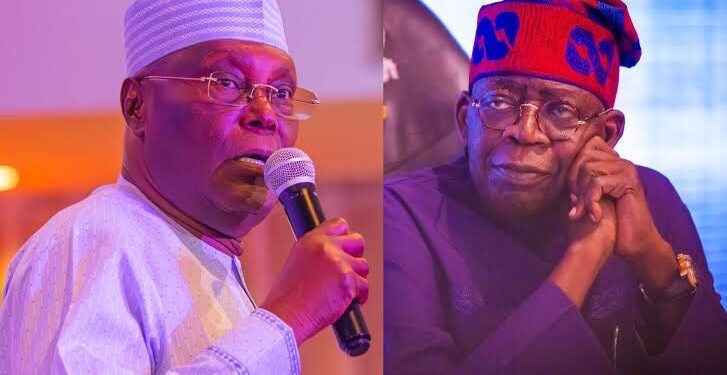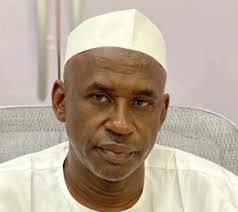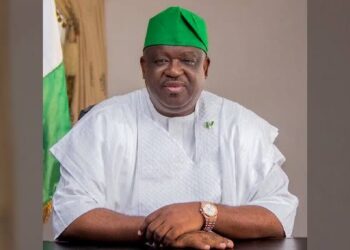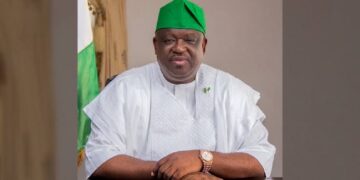By: Nwakaji Peace Martins
Former Vice President Atiku Abubakar has characterized the one-year governance of President Bola Tinubu as a phase of experimentation and mistakes. He asserts that the policies implemented by this administration have not led to prosperity but have instead impoverished the less privileged, bankrupted the wealthy, and inflicted severe economic turmoil upon the majority of Nigerians.
Abubakar emphasizes that Tinubu’s commitment to enhancing the economy has not materialized, with all the economic challenges faced during the previous administration worsening over the past 12 months.
He recalls that on May 29, 2023, President Tinubu raised the expectations of Nigerians by promising to revamp the economy to foster growth and progress through employment generation, food security, and eradicating extreme poverty.
However, the former vice president points out that Tinubu’s strategies have failed to deliver on his promises. The economic hardships persist, and the country’s economic stability has deteriorated significantly under his leadership.
Nigeria has regressed from being the foremost economy in Africa to the fourth position, trailing behind Algeria, Egypt, and South Africa. The hopes of citizens have been dashed, contrary to the government’s claims, as the economic challenges have only intensified.
Tinubu’s policies have not promoted prosperity but have exacerbated the suffering of the less fortunate and the financial ruin of the affluent. The citizens of Nigeria, predominantly impoverished, are grappling with the most severe cost of living crisis since the structural adjustment program of the 1980s.
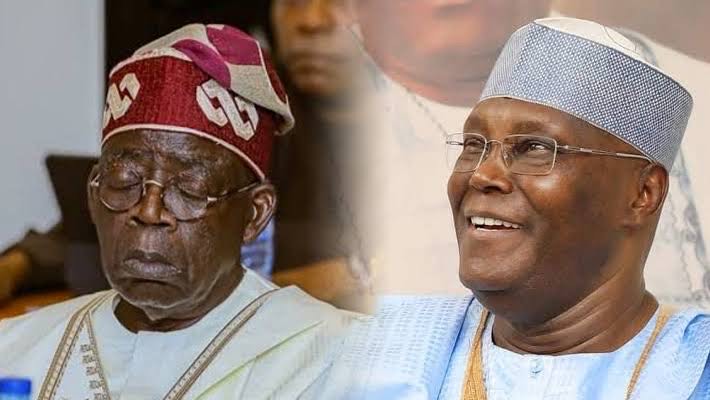
The annual inflation rate has soared to 33.69 percent, the highest in nearly three decades. The prices of food have become exorbitant, with food inflation surging to 40.53 percent in April, the highest in over 15 years.
Furthermore, the citizens of Nigeria are now paying significantly more for basic commodities such as rice, flour, and transportation compared to May 2023, with some locations witnessing a 305 percent increase in fuel prices. Despite these challenges, Nigerian workers are earning meager wages, with a minimum monthly salary equivalent to $23, placing them among the lowest-paid workers globally.
Abubakar criticizes Tinubu for removing fuel subsidies and imposing additional taxes on the populace without raising the minimum wage or implementing social welfare programs to alleviate the vulnerability and deprivation experienced by workers and their families.
The former vice president further asserts that the policies of the current administration have created an unfavorable environment for the private sector. The manufacturing industry has been hindered by escalating input costs, higher energy expenses, and borrowing rates, as well as foreign exchange complexities.
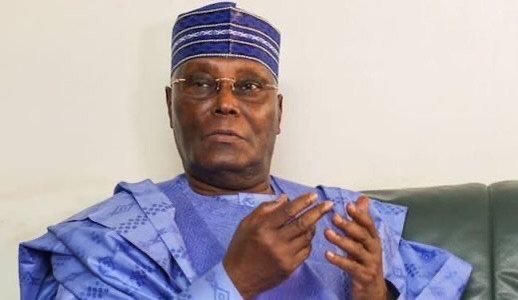
Tinubu’s foreign exchange policies have failed to enhance Nigeria’s foreign trade balance, despite expectations. The devaluation of the Naira resulting from the free-floating exchange rate has not improved the competitiveness of local producers or boosted exports of goods, whether raw or manufactured.
In the fourth quarter of 2023, imports surged by 163.1 percent, surpassing the slower growth rate of exports at 99.6 percent, resulting in a substantial foreign trade deficit. Similarly, in the first quarter of 2024, Nigeria recorded a trade deficit of $7.5 billion, with exports valued at $12.7 billion and imports at $14 billion.
Overall, the trade deficit as a percentage of the GDP has increased from 0.05 percent in May 2023 to 0.88 percent in May 2024.
Tinubu’s policies have failed to attract foreign investments into the country, as foreign direct investments (FDI) declined by 26.8 percent from US$5.33 billion in May 2023 to US$3.9 billion in May 2024. The former vice president emphasizes that the decline in FDI reflects a lack of trust in the leadership and the failure to deliver on commitments made to investors.
Abubakar urges Tinubu to review the 2024 budget to address the economic challenges effectively. He emphasizes the need for fiscal measures to mitigate the unprecedented surge in commodity prices, which has exacerbated the suffering of the poor and pushed millions below the poverty line. One immediate measure he suggests is to relax restrictions on selected food imports.
Tinubu is cautioned against imposing new taxes or raising existing tax rates, as these measures would further impoverish the less privileged. Abubakar emphasizes the importance of expenditure rationalization, enhancing revenue utilization efficiency, improving procurement processes, reducing the size of the government, and cutting governance costs to align the budget with Nigeria’s fiscal reality.
The former vice president calls on Tinubu to clarify the fuel subsidy regime, including the financial commitments and benefits of the subsidy reform on the Federation Accounts.
He stresses the urgency of revamping the nation’s security architecture due to the prevailing insecurity, which hampers agricultural production and economic value, particularly in the northern regions of the country.
The pervasive insecurity resulting from terrorism, banditry, kidnapping, and cattle rustling has forced many farmers and herders to abandon their lands and relocate to neighboring countries, leading to a significant drop in food production and a surge in food prices. Food scarcity in Nigeria poses a severe threat, with a report by Cadre Harmonise warning that around 31.5 million Nigerians could face severe food shortages and scarcity between June and August of the current year.


